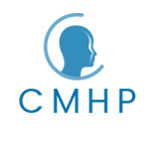Have you ever read a NICE guideline and thought “I don’t agree with that”? Did they miss something important or include something that you felt was not appropriate? Well, you are not alone! NICE generates more and more publications such as clinical guidelines, technology appraisals, and quality standards. These are being given greater credence by organisations and regulators. On this basis, we would strongly encourage everyone to get involved.
CMHP involvement
The CMHP council generally collates and submits comments on behalf of the organisation in order to make sure our views as a body of professionals is represented. Getting involved is easy. Our Consultations Lead Azra Sumar shares details of consultations via email when NICE contacts us.
It is a simple process to participate:
- reply to Azra’s email so she is aware how many people will be involved
- open the documents via the link
- download a comments form
- type-in feedback relating to specific sections of the document (this does not mean you have to review the WHOLE document, just a few paragraphs is fine)
- email the comments form to Azra.
Azra will then collate all the feedback and submit to NICE. Please note that there is no point in submitting your comments more than once. If you submit your comments via your own organisation, that is brilliant; there is no need to then submit the same points via the CMHP.
Members’ experiences
Members who have become involved for the first time found it a positive experience.
Elizabeth Bond, a specialist pharmacist based in Wales provided comments on the dementia Technical Assessment. She said:
As a NMP for dementia I responded to a CMHP request for consultation on the NICE dementia TA and found the opportunity to do so very rewarding.
The CMHP provides a great opportunity to feed into NICE consultations and mould the future direction of services and prescribing standards. Documenting my response to the consultation did not take more than an hour or two of my time and will be used as a CPD submission. I enjoyed reading the proposed changes and having the opportunity to reflect on how that would impact practice and ensure that any issues not considered were brought back to the NICE group.
Some members, such as Caroline Parker, Consultant pharmacist, have been actively involved in several previous consultations and was useful resource to Azra in preparing this information.
For the real experts in the field there is the opportunity to be one of the members of the guidelines development group. This is hugely time consuming, involves a selection process, and there may not be a pharmacist on every group. We are really proud of Roz Gittins, Chief pharmacist at Addaction, and since elected onto Council, who was recruited onto a NICE committee Pharmacist topic expert for alcohol use disorder. She said:
I would never have thought about it without your post so thank you!
Good for your CV!
If you have never submitted comments before, please set it as an objective for yourself in the next six months. If you do contribute to national work like this, this is great evidence for your CPD and portfolios of evidence for the RPS Faculty.
If you have an interest in any specific topic, then please let the Consultation Lead know (email [email protected]).
